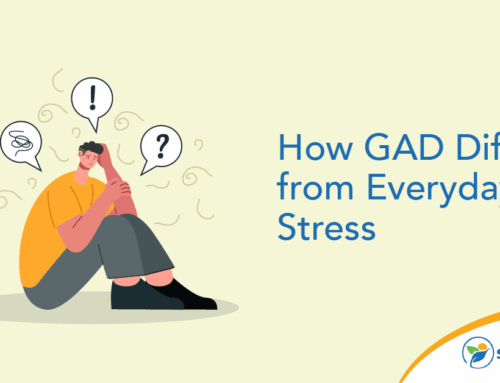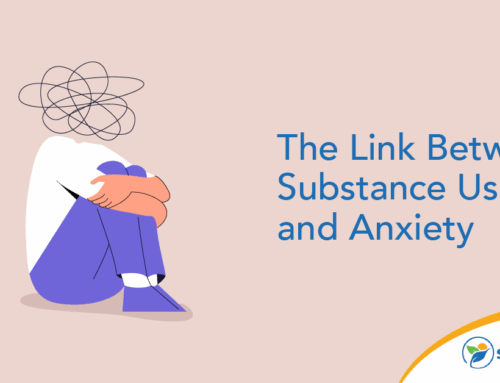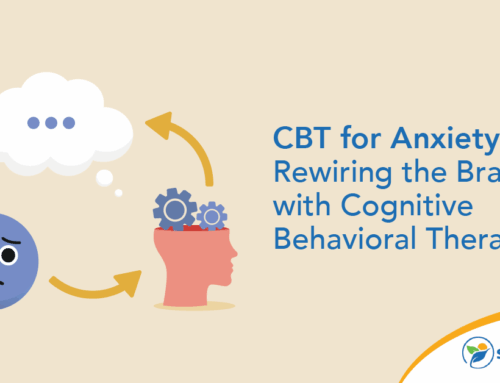Neurological diseases can have a significant impact on a person’s quality of life, increasing their risk of anxiety, depression and other mental health challenges. The link, resulting in neurological mental disorders, is something that care providers are learning more about by the day — but treating individuals who are struggling with their mental health and living with a neurological disease can nevertheless be challenging.
In this article, we’ll discuss the intersection of mental illness vs. neurological disorders, common challenges and changes in treatment approaches that can help people on the path to recovery.
The Connection Between Neurology and Mental Health
Neurological conditions are incredibly common. According to the World Health Organization, more than 30% of people worldwide are affected by neurological conditions, making them the leading cause of disability and illness.
Mental health challenges in people who are living with neurological disorders are often under-recognized, as research into the topic is still limited. Some neurological conditions associated with an increased risk of depression include:
- Parkinson’s disease
- Creutzfeld-Jakob disease
- Stroke
While researchers have identified these links, the cause of depression is still unclear. Some theories address increased iron deposits in the thalamus or impaired cerebral autoregulation, as seen in individuals who’ve had a cerebral stroke or live with Alzheimer’s disease. However, researchers haven’t yet been able to turn those theories into treatments to manage the neurological symptoms of depression.
Common Challenges With Neurological Mental Disorders
Balancing neurology and mental health challenges can be long-lasting and requires complex treatment. When a person has a dual diagnosis, treatment becomes more complex.
Post-stroke depression, for example, can negatively impact a person’s rehabilitation, reducing their quality of life and slowing recovery of cognitive function. Identifying signs of depression early and taking steps to treat it can increase the chances of a person making a full recovery after a stroke.
Depression isn’t the only mental health challenge associated with neurological disorders. Other common issues include:
- Anxiety
- Insomnia
- Cognitive impairment
- Psychotic symptoms
- Suicidal ideation
- Aggression
- Disassociative disorders
- Substance misuse
It can be difficult for health care providers to pick up on the symptoms of mental health disorders when they’re seeing a patient for a neurological condition, and treating the disorder can be challenging too. Physicians may have limited time to understand a patient’s symptoms and challenges, and the treatment options open to them may be more limited depending on the patient’s health and any medications they’re on.
In some cases, your doctor may offer certain mental health advice following a given diagnosis. Someone who’s recovering from a stroke or receives a Parkinson’s diagnosis, for example, might be directed to work on coping with anxiety or low mood following their diagnosis. This advice may not work for every patient, but it does make patients aware that it’s normal to struggle with their mood or mental health after receiving a major diagnosis. A provider may also be able to help their patients access support in the form of groups or local resources.
Treating Mental Health Symptoms and Neurological Conditions
Despite these challenges, there’ve been some promising advances in the treatment of both neurological disorders and mental health issues. Treatment for Alzheimer’s patients shows promise thanks to the development of cholinesterase inhibitors, which can slow the progression of the disease. By combining these drugs with others to help improve sleep quality and reduce mood swings, treatment programs can focus on increasing the quality of life for people with Alzheimer’s
In addition to drug-based therapies, cognitive behavioral therapy, talk or music therapy and emotional support can all help people who are affected by mental health disorders. These therapies are accessible to people with a variety of neurological conditions.
Because the interplay between neurological conditions and mental health is so complex, it’s important that primary care providers take the time to learn about a patient’s history and any preexisting conditions. There’s no one-size-fits-all treatment for depression or anxiety, and treatment can become more complicated when a person is living with a medical condition that limits their mobility, interferes with their sleep or has an otherwise troubling prognosis.
Improving Care for Patients With Dual Diagnoses
As awareness of mental, neurological and substance use (MNS) disorders grows and dual diagnoses become more commonplace, treatment protocols are steadily improving. In November 2023, the World Health Organization published new treatment recommendations for MNS disorders with the goal of improving access to evidence-based psychological interventions and medicines.
These recommendations include a new module on anxiety, recommending psychological interventions such as CBT to help people diagnosed with generalized anxiety disorder or panic disorder. The recommendations also suggest non-pharmacological interventions to help improve outcomes for those with dementia and suggested supports for people diagnosed with alcohol use disorders, anxiety or stress.
Treating individuals who have co-occurring neurological mental disorders requires a careful and comprehensive approach. Each diagnosis can affect the patient differently, which means the impact on their quality of life will vary as well. If one issue goes untreated, it can make the other condition worse or make recovery more difficult. Working with a care provider who specializes in dual diagnoses can significantly improve a patient’s long-term outcomes after a stroke or other significant health issue.
If you or someone close to you has been diagnosed with a neurological condition and is also struggling with anxiety, depression, stress or other mental health challenges, it may feel like there isn’t any light at the end of the tunnel. But advances in physical and mental health care mean it’s possible to manage both conditions and improve your life, as well as equip you with coping mechanisms and strategies to flourish in the long run.
At Sunlight Recovery, we provide a variety of treatment options that include inpatient and outpatient care, with comprehensive treatments for dual diagnosis. To learn more about out treatment options or book a consultation, contact us today.







